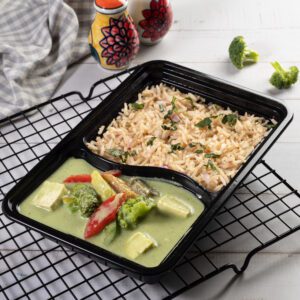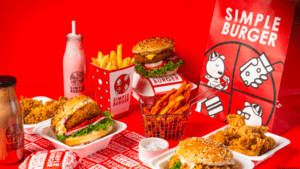Food business is no longer food business, it is a distribution business
You may have the best biryani in the world but your reach and access will define whether you are visible and selling and successful
A brand with 20 locations to order from in a city will fairly beat a single brand selling better biryani
of course there are exceptions if you are selling a legacy brand and have loyal clientele but that takes decades to build
Consistency of food
Achieving scale in multiple locations remains a huge challenge in India owing to skills. expertise, availability of resources & general economic costs attached to logistics & transportation
Making one dish same every time in multiple locations is a nightmare and only few have been able to master it so far (think Mcdonalds, Dominos etc)
Hence comes in place – automation & industrialisation of food
1st world costs, 3rd world sales
The costs of rentals, salaries, electricity etc are first world and are at par with developed countries but the spend per person on ordering food is third world
The average order value in India is 1/7th of China which makes the cost of delivery high in ration compared to other economies
Uneven market prices across cities
The prices of raw materials vary from city to city and are volatile making some cities unviable for business
If you source from a single supplier across the country, the money required to set up a cold chain in place will kill you as cost per mile in India is multiple times of sending the same material abroad
Lack of processes and compliance
India is known to be a non compliant country, a place where imposing processes and rules is a nightmare
Being a poor country, the loyalty among employees is fragile and there is a lot of turnover in short term impacting the quality of food
Low returns on management time
If you scale in width and not in depth, the costs associated with travel will eat up all your margins unless you have a decentralised management structure in each city
Thus a few companies making profits at unit level will still be prone to making losses at corporate level





